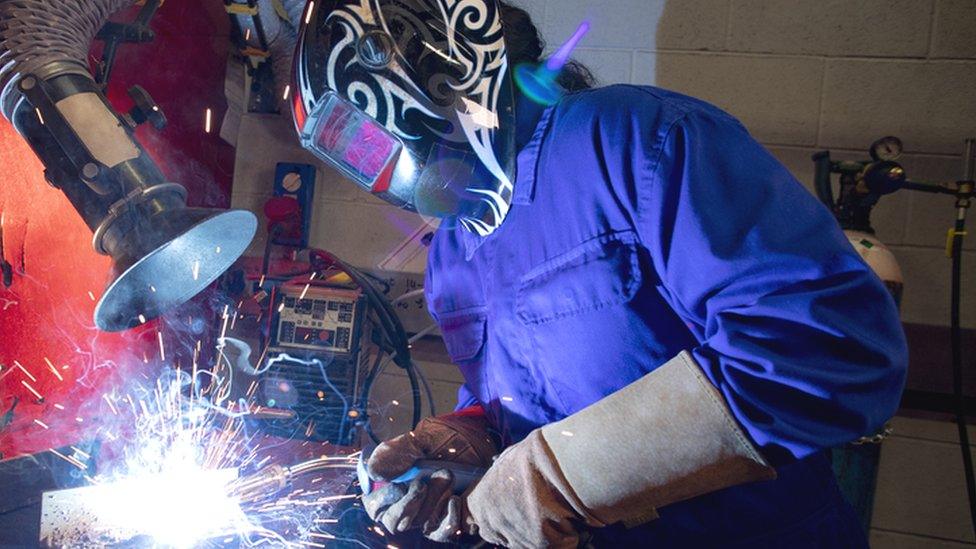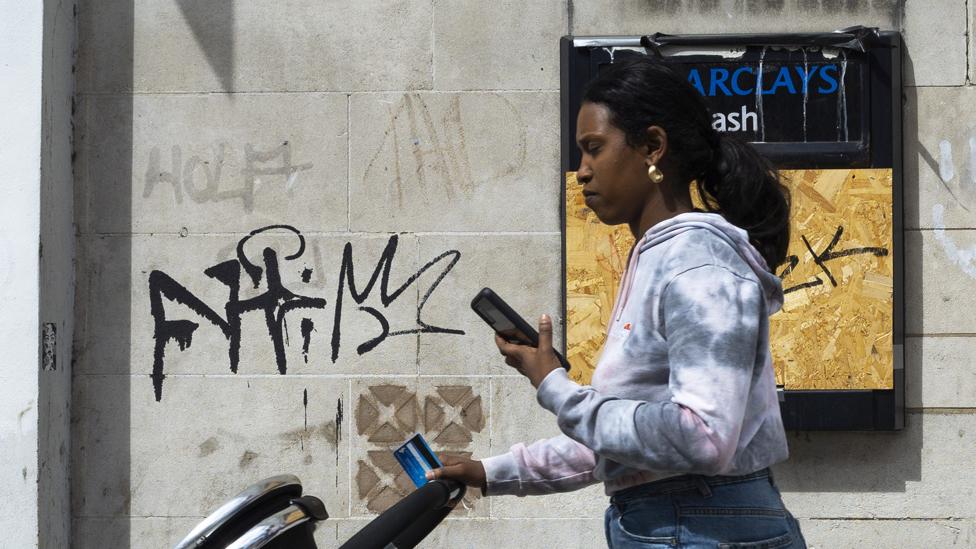Downturn 'deepens' in Scotland amid falling demand
- Published
- comments

Scottish firms have been warned of an "extremely difficult period" ahead, after a survey suggested output slowed for the third time in a row last month.
The warning from RBS came as its latest purchasing managers' index found firms struggling to bring in new business.
The downturn in new orders in October was the most severe in 20 months.
Respondents noted that economic uncertainty, threat of recession and the cost of living crisis had "weighed on client activity".
Private sector firms also reported a "reacceleration" of inflationary pressures on their businesses.
However, despite its severity, the pace of input price inflation was softer than the UK average.
The uptick in average costs was attributed to higher wages and utilities, the cost of living crisis and general inflation adding strain on costs.
The bank's business activity index - a measure of combined manufacturing and service sector output - fell from 48.0 in September to 45.8 last month.
Any figure below 50 suggests contraction.
Businesses reported a further weakening in recruitment last month, with the softest intake of workers in 18 months. Goods producers reported their first reduction in employment since January 2021.
Meanwhile, the survey suggested that an increase in confidence was underpinned by planned expansions and investment, with firms also hopeful of future economic stability.

The Royal Bank of Scotland said the latest data showed a deepening contraction across Scotland's businesses.
Judith Cruickshank, chairwoman of the bank's Scotland board, said: "As we proceed into the final quarter of the year, market conditions are set to become more challenging.
"The aggressive interest rate hikes, the decline in the value of sterling against the dollar and the rebound in post-Covid demand phasing out, all amidst the ongoing cost of living and energy crises, all point to an extremely difficult period for Scotland."
On Friday, official figures suggested the UK was heading into what is expected to be the longest recession on record.
According to the Office for National Statistics, the economy contracted by 0.2% between July and September as soaring prices hit businesses and households.
A country is in recession when its economy shrinks for two three-month periods in a row. The UK is expected to be in one by the end of the year.
- Published11 November 2022
